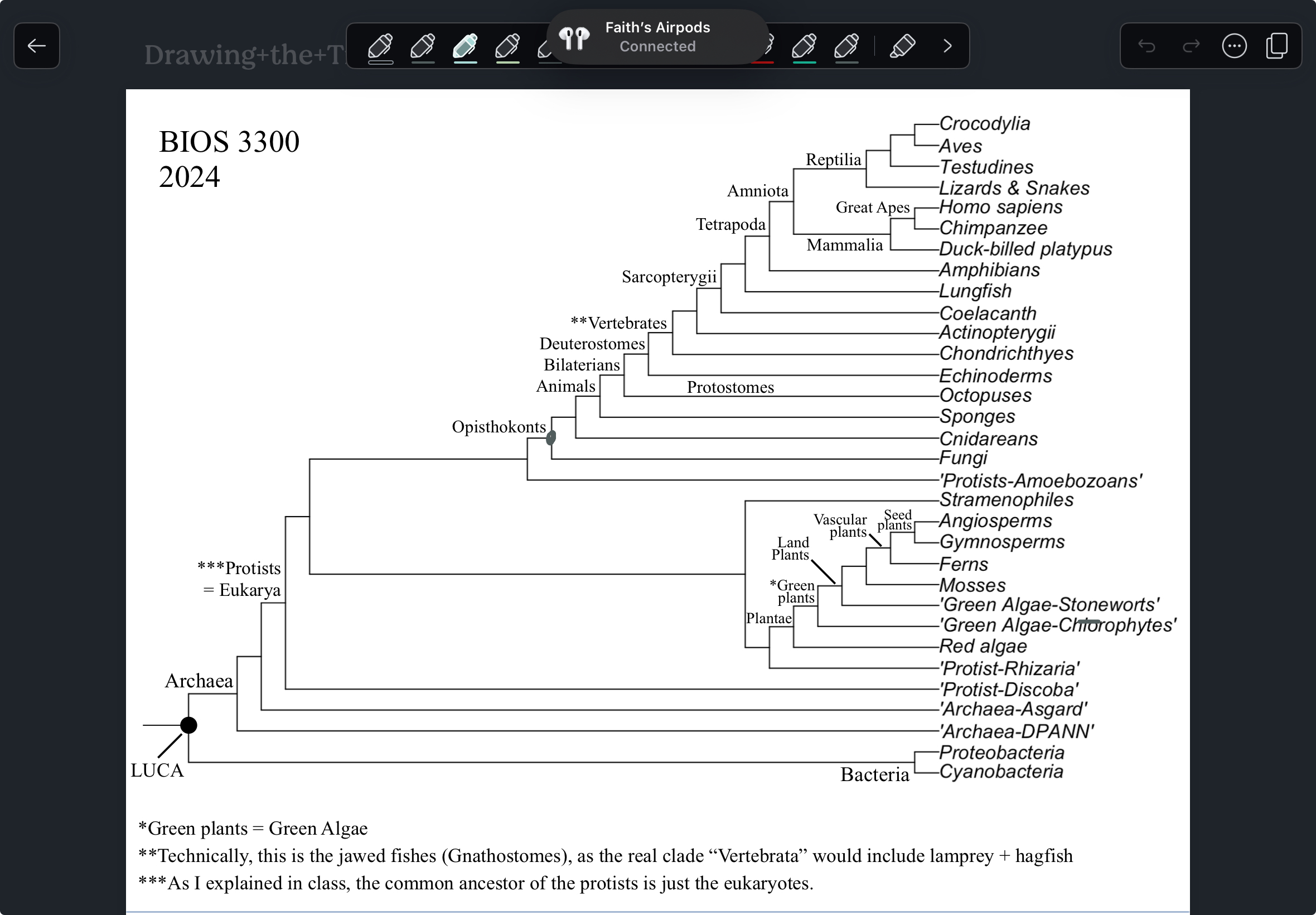Can you explain the phylogenetic tree shown in the image?

Understand the Problem
The question is asking for a description or analysis of the phylogenetic tree displayed in the image, potentially regarding the evolutionary relationships and classifications of various life forms.
Answer
The tree represents evolutionary relationships from LUCA, branching into Bacteria, Archaea, Eukarya (Protists, Animals, Plants).
The phylogenetic tree shown represents the evolutionary relationships among a wide variety of organisms from the last universal common ancestor (LUCA), including major groups such as Bacteria, Archaea, and Eukarya, with detailed branching into more specific groups like Vertebrates, Protists, Land Plants, and Animals.
Answer for screen readers
The phylogenetic tree shown represents the evolutionary relationships among a wide variety of organisms from the last universal common ancestor (LUCA), including major groups such as Bacteria, Archaea, and Eukarya, with detailed branching into more specific groups like Vertebrates, Protists, Land Plants, and Animals.
More Information
Phylogenetic trees help visualize hypotheses about evolutionary relationships among different species or groups. Each branch point represents a common ancestor shared by the branches diverging from it. The deeper the branch point, the further back in time it represents a common ancestor.
Tips
A common mistake is to assume that organisms at the tips of the branches are ancestors of those further back along the same branch. Each tip represents contemporary species, not an ancestral species.
Sources
- Phylogenetic trees | Evolutionary tree (article) - Khan Academy - khanacademy.org
- Reading a Phylogenetic Tree: The Meaning of Monophyletic Groups - nature.com
- Understanding phylogenies - Understanding Evolution - evolution.berkeley.edu
AI-generated content may contain errors. Please verify critical information